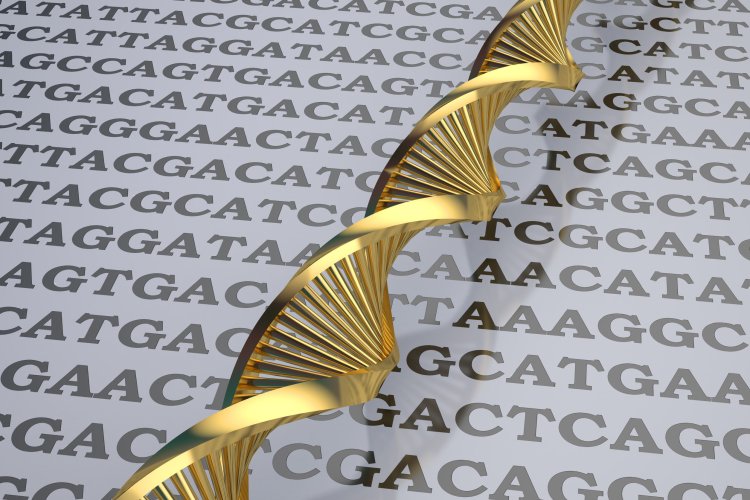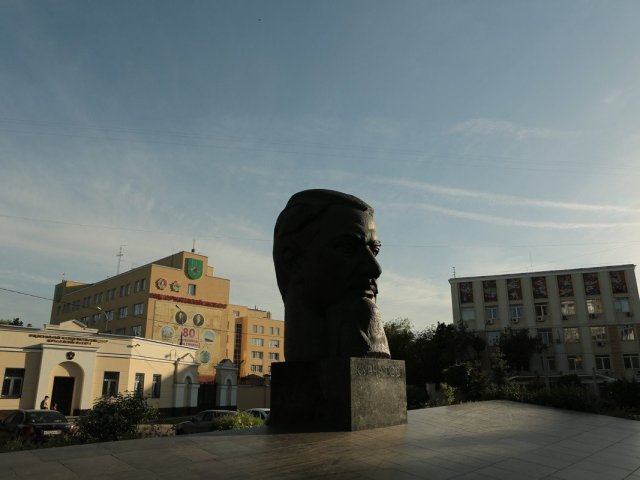The year 2021 was declared the Year of Science and Technology in Russia, and September, according to its calendar plan, is dedicated to genetics and quality of life. Today, as part of the year, we are talking about a fairly young science – one of the branches of biology called epigenetics.
Epigenetics literally means “above genetics.” Epigenetics studies the changes in the activity of genes that do not affect the structure of DNA. This is a certain number of factors that affect the expression (activity) of genes. This may include stress, lifestyle, nutrition, radiation, etc. – that is, what affects us, as well as animals and plants, from the outside.
There is a great variety of life forms on Earth, but all species – from the simplest bacteria to humans – have the same genetic code: four nucleotides in DNA, which are designated by the letters A, C, G, and T (adenine (A), cytosine (C), guanine (G), and thymine (T)). The sequence of these chemical units determines which proteins are produced by a cell of a living organism. Each human cell contains from two to three meters of DNA.
Epigenetics claims that environment and a person’s lifestyle change the body and its gene activity while leaving the DNA unchanged.
Epigenetics is the science of inherited properties of an organism that are not associated with a change in the actual nucleotide sequence of DNA and can be not directly but indirectly encoded in the genome. Known epigenetic mechanisms (signals) include enzymatic DNA methylation, histone code (various enzymatic modifications of histones — acetylation, methylation, phosphorylation, ubiquitination, etc.), and “silencing” of genes by small RNAs (miRNA, siRNA). Source.
Epigenetics began to develop as a separate branch of molecular biology in the 1940s. In 1942, English scientist Conrad Waddington, who laid the foundations of systems biology, was the first to formulate the concept of the epigenetic landscape. The biologist used this term as a conceptual model of how genes can interact with the environment when forming a phenotype (a set of external and internal characteristics of an organism acquired because of individual development).
Further work in this area was continued, and today epigenetics tells us that we are all born with a genome that does not change throughout life – however, the activity of certain genes does. And we can strengthen or weaken these epigenetic influences with the help of, but not limited to, medication. Thanks to epigenetic mechanisms, for example, a person who is prone to laziness can become more active.
“High activity, sports is an addiction of some sort since people gain pleasure from it through the release of hormones. Other people, on the other hand, may not enjoy this, because their hormones don’t get released. These people have slightly different genetics. We’ll call them “lazy” and “not lazy,” even though it’s kind of labelling. Because, in general, these two types of people are the same. And if a lazy person is taught to work from childhood, when they already have a genetic basis, then their epigenetic state is formed, which can somehow change the genes activity within certain limits. Then these people will also be able to be more active. As such, laziness does not exist,” – insists Sergey Lvovich Kiselev, Doctor of Biological Sciences, head of the Department of Epigenetics of the Vavilov Institute of General Genetics of the Russian Academy of Sciences, in an interview with Scientific Russia.
The mechanisms of epigenetics, in particular, are responsible for the fact that our bodies can adapt to changing environmental conditions.
“This is a kind of “interface” between a very stable and identical genome in all cells, genetic information, and the environment,” – says Kiselev.
The scientist compares epigenetic mechanisms with punctuation: they do not change our genetic text, but place punctuation marks in it. Such punctuation marks, for example, can be an additional, methyl group based on cytosine. DNA methylation by cytosines serves today as the main tool for studying epigenetic features.
Note. Cytosine is a nitrogenous base derived from pyrimidine. With ribose, it forms the nucleoside cytidine, which is part of the DNA and RNA nucleotides.
Boris Fedorovich Vanyushin, Corresponding Member of the Russian Academy of Sciences, Doctor of Biological Sciences, was the first to engage in epigenetic research in our country. He discovered that DNA methylation in animals is tissue-specific, which indicates that epigenetic modification is a mechanism for controlling gene activity and cellular differentiation. These pioneering works marked the beginning of modern developmental epigenetics.
“The task of epigenetics, as well as gerontology, is to regulate gene expression so that a person or any living being can reach its species limit (that is, an increase in life expectancy to 40%, for a person it is 110–120 years),” – says Corresponding Member of the Russian Academy of Sciences, Director of the Saint Petersburg Institute of Bioregulation and Gerontology Vladimir Khatskelevich Khavinson.
Even the microclimate in your team affects the work of epigenetic mechanisms, says the scientist. If where you work, everyone is constantly fighting and arguing, this leads to chronic stress, which, in turn, provokes the suppression of immunity.
“Change your lifestyle – and you will initiate a chain of biochemical changes that will imperceptibly but steadily help you and, possibly, all your descendants until the end of their life on Earth,” – writes German neuroscientist, popularizer of science and writer Peter Spork.
Epigenetics is a fairly young science, which, nevertheless, inspires great hopes in terms of prolonging life and improving its quality. The most amazing thing is that we can influence the activity of certain genes during our lifetime. It is believed that epigenetic switches can even neutralize already mutated genes, and this gives a chance to radically change medicine and cope with such dreadful diseases as, for example, cancer. But for now, this is a matter of the future. The research continues.
Photo: alexlmx / 123RF






















